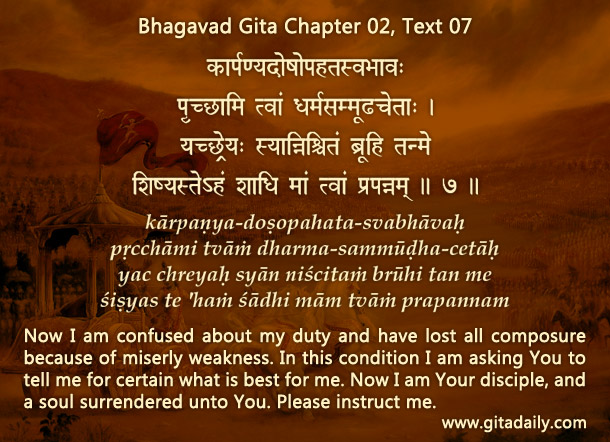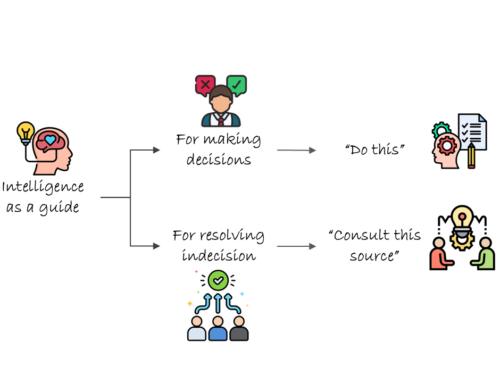When we are told that we are wrong, we often resent it. Worse still, when we are told that we are wrong about our core notions, we feel as if the core of us is dying with the death of our conceptions.
Our opposition to the refutation of our misconceptions frequently stems from our ego, the part of us that insists on its correctness. It is this part that when extended creates the fundamental misconception responsible for our mistaking ourselves to be material creatures, not spiritual beings.
The Gita (02.07) begins with Arjuna admitting that he was confused about his course of action – an ethical confusion that pointed to an existential crisis. For a reputed ruler, the admission of his confusion and delusion right in the middle of the battlefield in public view could well have been seen as a death of the ego, but his courage in doing so became the roadway to his self-actualization.
While resolving Arjuna’s crisis and confusion through its profound wisdom, Gita wisdom differentiates between false ego and true ego: false ego makes us hold on to false notions as the foundations of our self-identity, whereas true ego enables us to assimilate truths as progressions towards self-actualization.
The self is actually beyond destruction, being eternal and spiritual. So the false ego’s paranoia that being proven wrong is self-destruction is ontologically unfounded. Thus, by staying fixed in the pursuit of scriptural truth even when it counters our preconceived notions, we see the dissolution of the false ego as a demanding yet fulfilling roadway towards the restoration of the true ego in its ontic position as the substratum of our self-awareness as eternal parts of God, meant for eternal happiness in loving reciprocation with him, in an arena free from the delusions of the false ego.

Explanation of article:


Leave A Comment